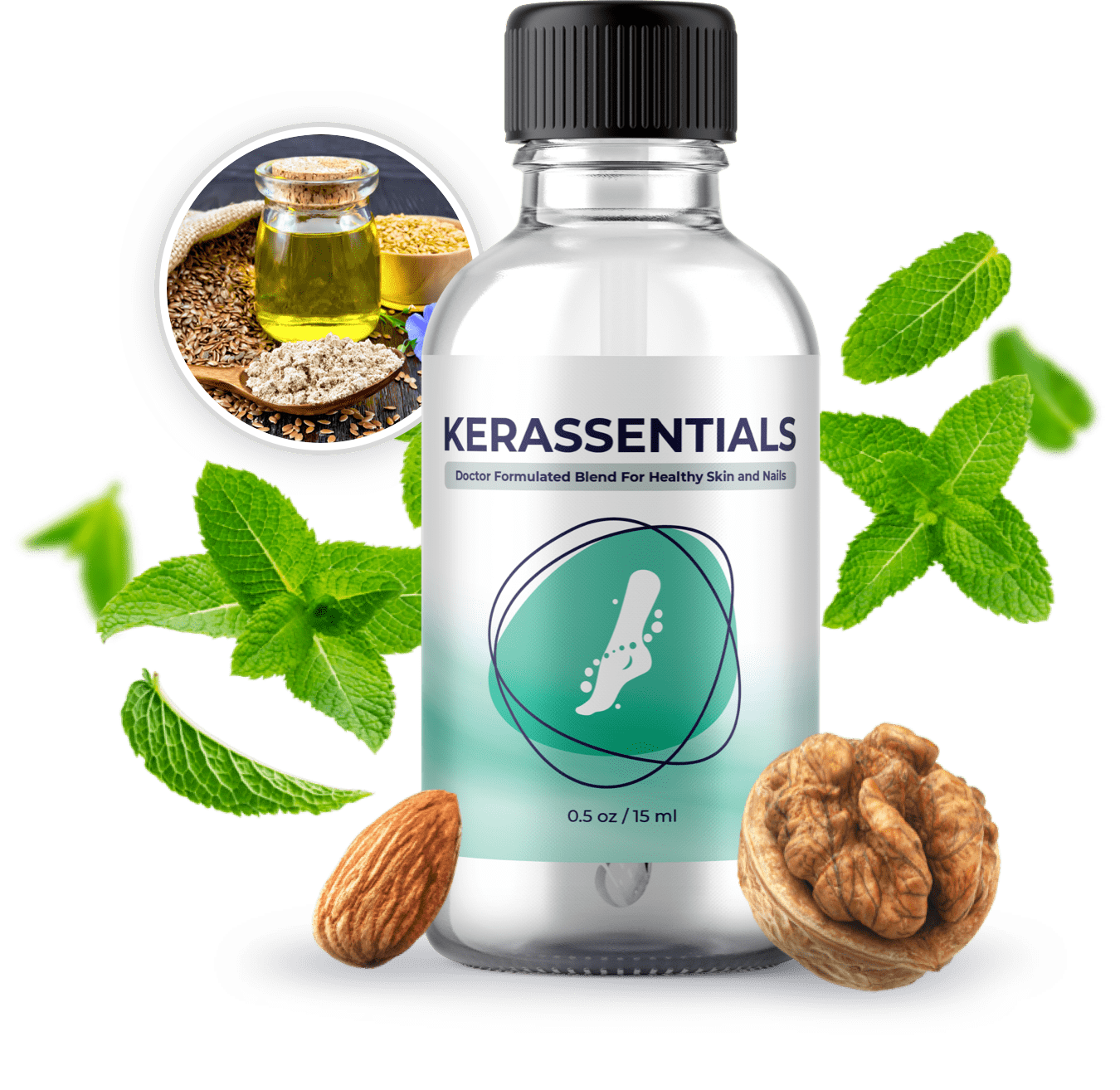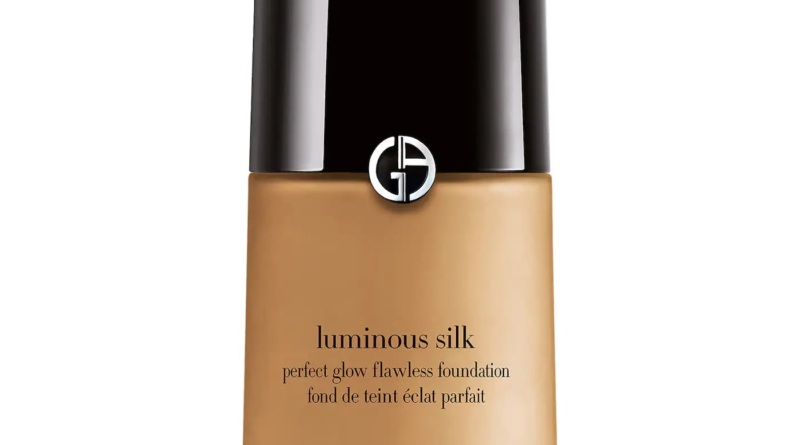8 of the Best Makeup Sponges for a Blended Finish, Plus Tips From a Celeb Makeup Artist
Using the right beauty tool is the secret to creating a seamless look—and for many, that tool is the beauty blender (also known as a makeup sponge). Many experts swear by its ability to deliver a second-skin finish thanks to its soft, porous material that allows for an even, seamless makeup application. Beauty blenders are […]
Searching for a foundation when you’re prone to acne always feels like a bit of a gamble, admittedly. Even for the most meticulous of researchers—those who live in the product review section or sleuth the depths of TikTok for new discoveries—the feat is hardly for the faint of heart. There’s always an underlying fear that wearing makeup can cause or further exacerbate breakouts, but we’re happy to report that you can wear one of the best foundations for acne-prone skin sans worry if you’re mindful of what you use. (And please do continue to prioritize repairing your skin barrier and follow these skin-clearing tips from dermatologists we trust.)
Even so, it’s important for us to note that all skin is unique. No matter how many stamps of approval a particular product receives, always review the formula to make sure it doesn’t contain ingredients you recognize as incompatible with your skin. Patch test it first, and be sure to keep the rest of your beauty routine the same so you can pinpoint whether or not the foundation is right for you.
The best foundations for acne-prone skin, at a glance:
- Best luxury foundation: Armani Beauty, Luminous Silk Perfect Glow Flawless Foundation, $69
- Best treatment foundation: Clinique, Acne Solutions Liquid Makeup Foundation, $36
- Best affordable foundation: about-face, The Performer, $22
- Best drugstore foundation: Neutrogena, SkinClearing Oil-Free Makeup, $18
- Best SPF foundation: IT Cosmetics, CC+ Cream Full-Coverage Foundation with SPF 50+, $47
- Best everyday foundation: Ciele, Tint & Protect SPF 50+ Tinted Serum Foundation, $44
- Best lightweight foundation: Rose Inc, Skin Enhance Non-Comedogenic Skin Tint Serum Foundation, $49
- Best medium-coverage foundation: NARS, Light Reflecting Advanced Skincare Foundation, $52
- Best all-in-one foundation: Danessa Myricks, Yummy Skin Blurring Balm Powder, $36
- Best stick foundation: Ami Colé, Skin-Enhancing Stick, $29
- Best liquid foundation: Haus Labs, Triclone Skin Tech Foundation, $45
- Best powder foundation: bareMinerals, Original Loose Powder Mineral Foundation SPF 15, $39
- Best foundation for oily, acne-prone skin: NARS, Soft Matte Complete Foundation, $42
- Best foundation for dry, acne-prone skin: Espressoh, OhMyGlow, $33
Should you wear foundation if you have acne?
Should you? It’s entirely up to you. Can you? Absolutely, especially if you’re working with one of the foundations within our edit and follow our experts’ tips for foundation application as well as pre-and post-makeup care.
Shop 14 of the best foundations for acne-prone skin
Both Dr. Chiu and makeup artist Jessica Lamb namechecked this award-winning foundation as one of their favorite recommendations for acne-prone skin. It’s like the Goldilocks of bases: not too shiny and not too matte, just right and perfectly blurring for a filtered finish. “This is a fan favorite for a reason,” Lamb says: it does the job in terms of coverage and looks great IRL, in photography, and TV, too. For those with active blemishes or uneven texture from a bout of breakouts, Armani Luminous Silk glides right over imperfections without highlighting them.
Coverage: Buildable, light to medium coverage
Pros:
- Oil-free
- Silky, easy-to-blend formula
- Radiant, naturally-looking finish looks skin-like IRL & photos
- Extensive undertone range
Cons:
- Mild fragrance
- Lacking shade options for deep skin tones
- Pricier option
At the top of Dr. Chiu’s list of best foundations for troubled skin was Clinique’s skin-clearing treatment formula because it contains salicylic acid, an ingredient she notes that can help treat and prevent acne. You get the buildable coverage, the clarifying care, and the preventative benefits in one bottle. Oil control keeps excess sebum (which can clog pores) at bay, but the finish never veers too matte; you simply look fresh-faced and even.
Coverage: Moderate with matte finish
Pros:
- Oil-free, lightweight, and easy-to-blend liquid formula
- Packed with active skincare ingredients like 0.5% salicylic acid
- Clinical testing showed that subjects had significantly fewer visibly clogged pores within 10 days
- Affordable
Cons:
- Limited shade diversity
“It’s packed with 17 skincare ingredients that calm, soothe, and revitalize the skin barrier,” Lamb says. And though it’s skin-focused, The Performer doesn’t forgo wear time—something she appreciates as a makeup artist (and why she counts this as one of her top three go-to’s for acne-prone skin). It’s plush in texture—cushiony, even—and manages to feel nourishing even throughout the day. For oilier skin types this sumptuous feel may take some getting used to, but it’s a dream formula that won’t cling to or highlight any flakiness (typical of a breakout that was recently treated, and healing).
Coverage: Buildable, medium coverage
Pros:
- Non-comedogenic and packed with skincare ingredients
- Longwearing & hydrating formula
Buildable sheer to full coverage and soft-focus finish that looks like skin - Extensive shade and undertone range
- Affordable price
Cons:
- Shades tend to look a little warmer on skin
<!– –>
Full-coverage foundations are the typical defaults for acne-prone skin—but pimples can be cute, and sometimes you just want to embrace your skin exactly as it is, blemishes and all. Neutrogena SkinClearing Oil-Free Makeup is the one for those days (or daily for perpetually troubled skin, given its clarifying formula). Coverage is natural to even out the look of skin while controlling shine. More importantly, it’s oil-free and contains salicylic acid to fight breakouts: a standout factor that makes this foundation a top recommendation from Dr. Chiu.
Coverage: Natural
Pros:
- Contains 0.5% salicylic acid and other skincare ingredients
- Features MicroClear® Technology to help treat blemishes & prevent emerging breakouts
- Affordable
Cons:
- Limited shade & undertone diversity
It’s a fan-favorite for a reason—and another both Dr. Chiu and Lamb list among their top recommendations for acne-prone skin. Don’t underestimate its coverage potential, though: this is a powerhouse that conceals uneven skin tone, acne scars, redness, and large pores with the confidence of a foundation with a capital F, thanks to its silicone-based formula. The fluid-cream texture makes building and blending a breeze, and because it’s technically a CC+ cream, derm-approved ingredients like niacinamide and vitamin E help care for skin, too.
Coverage: Full
Pros:
- Non-comedogenic, creamy, hydrating formula
- Contains mineral SPF 50+
- Great shade options for fair to light skin tones
Cons:
- Limited undertone diversity
“This skin tint is for those who truly do not want a lot of coverage and just want to even out the skin tone,” Lamb says. “It has antibacterial ingredients which are great for acne-prone skin, and a mineral sunscreen of SPF 50 [which] tends to cause less breakouts for acne-prone skin.” Ciele Tint & Protect is great for daily wear, she notes, especially for those with dry skin and experience breakouts: the hybrid serum-foundation formula glides over bumps and blemishes with minimal effort.
Coverage: Light to medium
Pros:
- Non-comedogenic and infused with skincare ingredients
- Your-skin-but-better finish
- Contains mineral SPF 50+
Cons:
- Limited shade range (but a tinted serum formula does mean it offers flexible coverage)
<!– –>
While this serum-foundation hybrid isn’t technically billed for acne-prone skin (the Rose Inc. brand perspective seems very much like the clear-skin, “clean-girl” aesthetic, personified), it’s actually stunning on all skin types—even if you have minor breakouts, small bumps, or post-inflammatory hyperpigmentation, and don’t want to go the full-coverage or matte route. Set with powder in the T-zone if you’re on the combo-oily side; otherwise, this luminous finish (by way of hydrating ingredients, not shimmer) enhances your complexion beautifully.
Coverage: Sheer to light
Pros:
- Non-comedogenic, hydrating serum formula
- Great formula for adding a healthy glow to dry, normal, or combo skin with mild breakouts
- Packed with skincare ingredients
- Radiant, skin-like finish
Cons:
- May be too dewy for oily, acne-prone skin
Illuminating foundations seem counterintuitive for troubled skin (especially if your most formative years for developing beauty habits started at a time when matte makeup was queen), but makeup innovation has made strides since. Lamb loves this for acne-prone skin because it’s “universally flattering” and sets flawlessly on most skin types. It’s exceptional at concealing spots, post-acne discoloration, and redness—all the makings of a solid base for smoothing the look of imperfections without contributing to breakouts.
Coverage: Buildable, medium
Pros:
- Luminous, skin-like finish for dry, normal, or combo skin with mild breakouts
- Packed with skincare ingredients
- Clinically tested to improve the look of skin clarity
Cons:
- May be too radiant for very oily, acne-prone skin with large pores
- Mild fragrance
- Moderately pricey
Product names can be wholly hyperbolic, but this Danessa Myricks do-it-all balm truly delivers what it purports to: yummy skin. For those with combo-to-oily skin and mild breakouts, the hero ingredient—Upsalite—is the secret to its airbrushed finish. Sweat and oil are absorbed throughout the day to keep unwanted shine in check (which can cause the foundation to break up and exacerbate the look of breakouts), giving skin a beauty-filter-IRL finish that blurs the look of pores and blemishes.
Coverage: Buildable, medium
Pros:
- Unique, innovative formula infused with hydrating skincare ingredients
- Flexible shade range
- Lush, suede-like finish
- Travel-friendly
Cons:
- May accentuate dry areas—so hydrate and prime well
- Some pilling or flaking may occur, so layer strategically (both under and over)
<!– –>
For starters, the con below isn’t a con, especially considering that even in this day and age, some of the most popular foundations—however modern or innovative in formulation—still lack the breadth and depth required for inclusivity. When brands like Ami Colé can fill the gaps and address the needs specific to melanated skin, it’s a feat worth celebrating. As is the formula of this scribble-and-go stick: there’s nothing cakey about it. Even on textured areas it blends well, and layers just as easily to conceal blemishes, post-breakout discoloration, and other visible imperfections without losing its skin-like finish.
Coverage: Medium
Pros:
- Travel-friendly
- Multi-purpose—use to cover & sculpt
- Creamy, easy-to-blend formula infused with nourishing ingredients
- Great shade options for warmer undertones
Cons:
- Best suited for medium to deep skin tones
“If you are looking for a foundation with buildable coverage and a luminous finish, this is it,” says Lamb—who loves it for all skin types, and more specifically, for acne-prone skin. Not only does it have incredible staying power, but it’s enriched with fermented arnica: an ingredient that can help visibly calm and soothe irritated or inflamed breakout-prone skin. Also infused are proprietary blends of super antioxidants and medicinal herbs for an extra dose of reparative care.
Coverage: Buildable, light to medium
Pros:
- Non-comedogenic, weightless, serum-like formula leaves a natural, luminous finish
- Packed with skincare ingredients
- Extensive shade and undertone range
Cons:
- Thinner formula may accentuate dry areas
This particular powder has been around for what seems like forever—and yet it still remains ever-relevant as a fan favorite. (bareMinerals’ signature swirl-tap-buff method is practically embedded into millennial minds.) It’s as good as we remember, thankfully, and though this loose powder foundation takes a few minutes to melt into skin the way a pressed or liquid formula would, the final effect is worth the wait. A simple, clean formula gives peace of mind and has been shown in clinical studies to promote clearer skin, too.
Coverage: Buildable, sheer-to-full
Pros:
- Non-comedogenic and hypoallergenic
- Extensive shade & undertone range
- Only 5 ingredients (and includes SPF 15)
- Natural satin finish
Cons:
- May be too mattifying for dry, acne-prone skin (we have other foundation options if that sounds like you)
- Takes time to settle into skin
<!– –>
NARS Soft Matte is another one of Lamb’s favorite foundations as a makeup artist. “If you have oily skin with shine that doesn’t quit and want a velvety matte foundation with a natural finish, this is the one,” she tells us. “This foundation builds incredibly from medium to full coverage but looks like skin.” And, she adds, “It looks amazing on camera.” Minimal touch-ups are required because it stays matte for hours (up to 16 hours, NARS claims!)—perfect for long days or hot, humid climates.
Coverage: Medium to full
Pros:
- Sweat-proof & transfer-proof
- Ultra velvety, matte finish
- Delivers a balance of hydrating & oil-absorbing benefits
Cons:
- May be too matte for dry, acne-prone skin
- Lacking in undertone & shade diversity for deep skin tones
Addressing dry, acne-prone skin often falls by the wayside because we tend to associate breakouts with oily skin—but those on the flipside crave coverage with a side of smoothing, barrier-soothing hydration. Matte or full-coverage liquids and powders can cling to dry patches but this sumptuous serum-like formula replenishes immediately and throughout the day. Redness and imperfections are evened out (though not completely erased; this is meant to serve as a buildable tint that lets your skin shine through). However, it’s this fully-rested, I-got-eight-hours-of-sleep glow—by way of the caffeine and vitamin C- infusion—that makes this a standout for enhancing and embracing your skin.
Coverage: Sheer to light
Pros:
- Hydrating serum-like formula
- Radiant, glowy finish
- Infused with vitamin C & other skincare ingredients
Cons:
- Contains fragrance
- Lacking in undertone & shade diversity (but the lighter formula is intended to adapt to most skin tones)
- Only available on brand’s website
What to look for in foundation for acne-prone skin
Annie Chiu, MD, board-certified dermatologist (who’s responsible for quietly maintaining some of the most naturally beautiful celebrities in Hollywood) and founder of The Derm Institute, advises that those with acne-prone skin should look for foundations that are non-comedogenic—and address their personal skin needs.
When it comes to foundation type, she recommends:
- Oil-free or non-comedogenic foundations: These formulations specifically are designed not to clog pores, therefore reducing the risk of breakouts. (Luckily, these claims are typically explicitly labeled on the foundation packaging!)
- Water-based foundations: Dr. Chiu describes these are lighter and less likely to clog pores (in comparison to oil-based ones), noting that these are a great choice for those with acne-prone skin since they provide coverage without adding extra oil.
- Liquid foundations: “Liquid foundations are a popular choice for acne-prone skin because they tend to be lightweight and can provide buildable coverage without feeling heavy,” Dr. Chiu explains, listing them as a great alternative to cream formulas.
- Matte-finish foundations: Matte foundations can help control excess oil and shine—however, extremely matte formulas can emphasize dry patches and texture, she adds.
In general, she suggests avoiding cream foundations (which can be too heavy for acne-prone skin and cause, or worsen, breakouts.) Fragrances can also irritate acne-prone skin, so if you have an existing sensitivity (or haven’t yet considered this factor), try looking for a fragrance-free foundation. Hypoallergic may be even better, simply to reduce the risk of allergic reactions altogether.
And: if you use a primer, take stock of the ingredients as well. Go non-comedogenic to create a smooth base for your foundation without clogging pores, Dr. Chiu adds.
Ingredients to look for
According to Dr. Chiu, look for foundations with the following ingredients:
- Salicylic acid: Exfoliates & unclogs pores
- Hyaluronic acid: Hydrates without adding extra oil
- Glycerin: Moisturizes without clogging pores
- Niacinamide (a.k.a. vitamin B3): Helps control sebum & is anti-inflammatory
- Squalane: Hydrates (it’s an oil, but it’s lightweight & non-comedogenic)
- Zinc oxide & titanium dioxide: Provides sun protection
- Vitamin E: Provides antioxidant benefits
- Green tea extract: Provides anti-inflammatory & antioxidant benefits
Ingredients to avoid
… all while staying clear of these:
- Comedogenic oils (like coconut oil, wheat germ oil & cocoa butter)
- Synthetic & natural fragrances
- Alcohol (high concentrations can be drying & irritating)
- Heavy silicones (opt for lighter silicone formulations instead)
- Talc (which may be irritating for some)
Foundation tips & tricks for acne-prone skin
Application is just as important as the formula, emphasizes Jessica Lamb, a pro makeup artist who’s worked with brands like Hourglass and Charlotte Tilbury with a celebrity client list that includes Beverly Johnson and Elizabeth Rohm.
For true oily and acne skin types that tend to struggle with uneven texture, she’ll use a water-based foundation. If she notices mild acne (which she defines as red blemishes and whiteheads), she typically reaches for a formula that is fluid in texture, buildable in coverage, and will even out the skin tone with light-reflecting particles for a satin-to-luminous finish.
Water-based, oil-free foundations are what she recommends for clients with cystic acne or active breakouts. They’ll smooth the appearance of breakouts without further aggravating the skin,” Lamb notes, “and blur blemishing with a satin-matte to matte finish.”
And for clients who do not want a lot of coverage, she prefers an oil-free tinted moisturizer that has medium coverage.
6 tips for applying foundation on acne-prone skin, from a pro makeup artist
Jessica Lamb shares her best tips and recommendations for everything from how to prep acne-prone skin for foundation, and the MUA way to apply it.
- If you’re acne-prone and oily, go for textures that are lightweight and gel-based. (Like Dr. Chiu suggested, aim for oil-free formulas across the board not just in foundation, but in your moisturizer and primer too.
- Never use an oil-based primer when applying on cystic or acne-prone skin, since it might clog pores and further aggravate existing breakouts. Instead, look for oil-free and non-comedogenic formula.
- Using a water-based foundation? Stick exclusively to water-based products—a rule that applies to skincare and makeup both. Same rule applies if you’re using a silicone-based product; stick with silicone formulas. “Like products blend more seamlessly,” Lamb explains, “which is key when applying makeup on acne-prone skin. This will also prevent separation throughout the day.”
- If your skin tends to get really oily, skip moisturizer and use a lightweight lotion or hydrating serum that gives skin a fresh, soft-matte finish and feel.
- If you have severe redness and active breakouts, use a green color corrector or green-tinted primer to spot conceal and neutralize the red areas. Then, use a light powder to set the corrector before following with foundation. Apply using a stippling technique and set the entire face with a light, loose powder.
- Be very gentle on the skin when applying foundation, and use light pressure when you’re building up coverage. “A soft press-and-roll technique works great when you need to adhere pigment to an area that isn’t grabbing,” Lamb advises—adding that this might just be the most important tip of all.
Recommended Story For You :
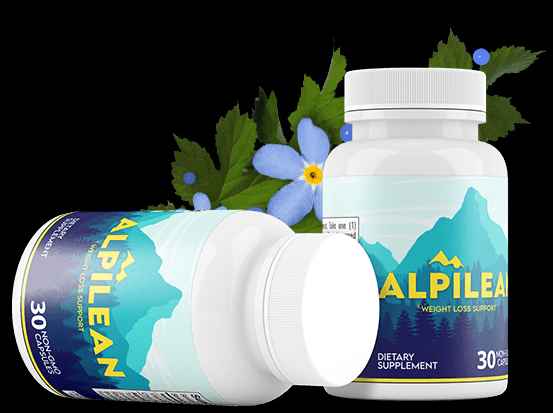
The alpine secret for healthy weight loss

The Most Potent Fast-Acting Formula For Incinerating Stubborn Fat

Real Cortexi Users Real Life‑Changing Results
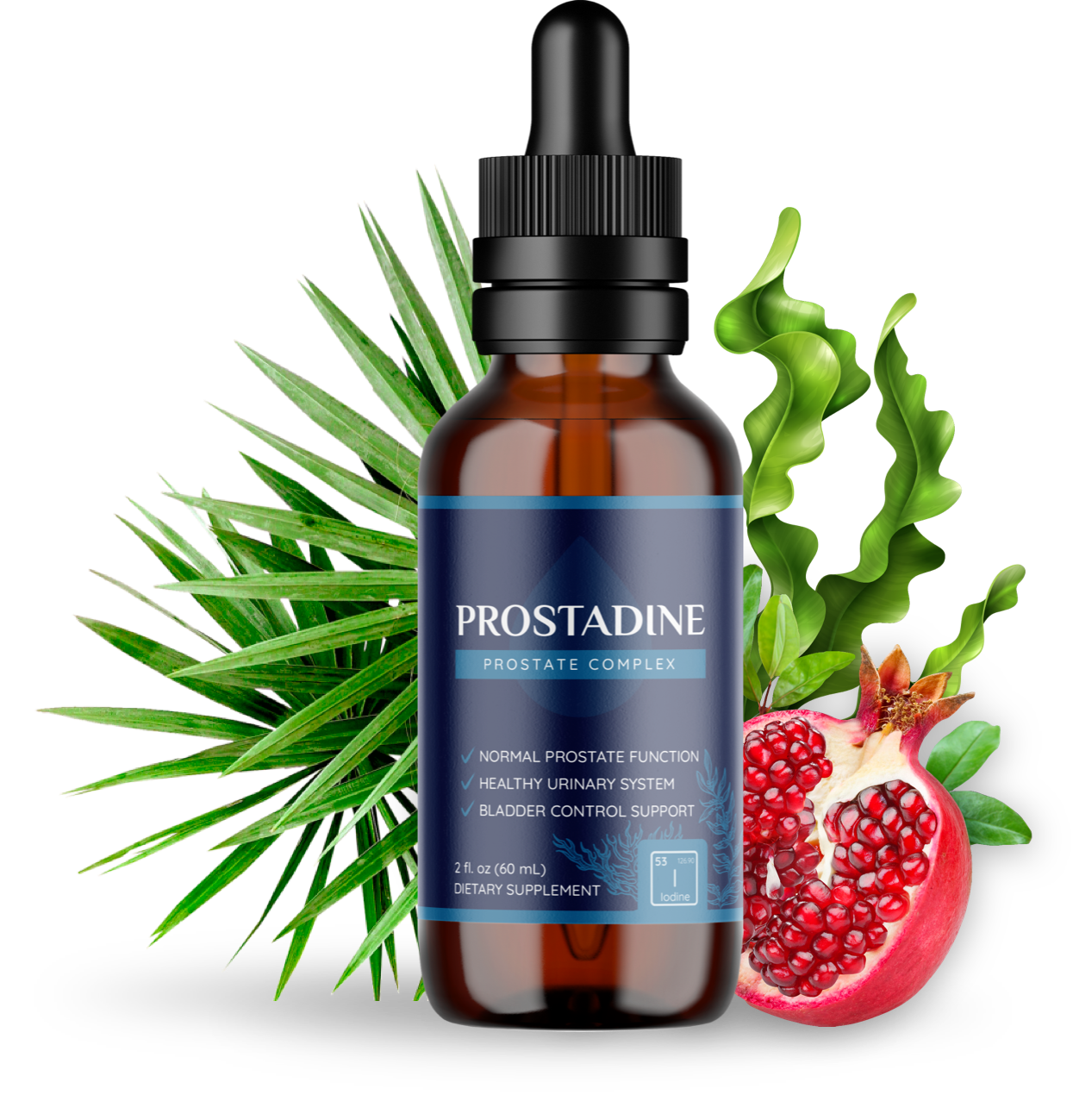
This Cold Drink Might Trigger Your Prostate
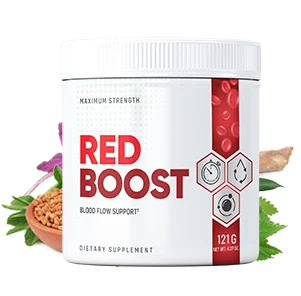
Red Boost is a powerful new formula for boosting male sexual health.
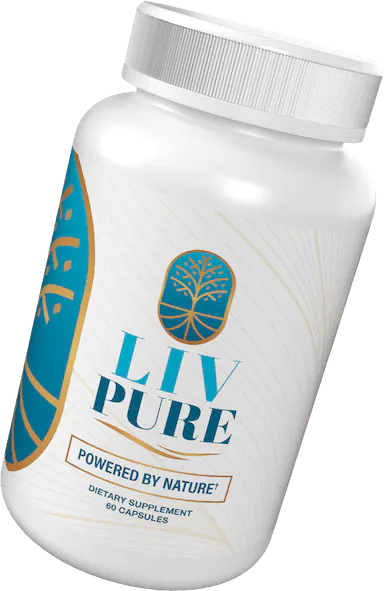
Everything you eat or drink eventually reaches your liver for processing.

Brand New Probiotics Specially Designed For The Health Of Your Teeth And Gums

Empowering You to Take Control of Your Blood Sugar Health!

Scientists Finally Discover the Root Cause of Belly Fat and Unexplained Weight Gain
